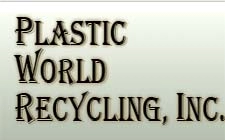Recycling Facts
- Less than 35% of households and less than 10% of businesses in the U.S. recycle. (EPA, 2011)
- Those levels have barely improved in 15 years despite billions of dollars spent on competitions, symposiums, awareness campaigns and sorting technologies.
- The experience at the bin needs to be improved for the general public, which is why we have introduced society-wide standardized labels.
- If the US recycling levels can reach 75% it will be the environmental benefit of removing 50 million cars from the road each year and it will generate 1.5 million new jobs. Improving and increasing recycling is one of the greatest opportunities for our environment, our natural resources, and our economy!
(collected from the National Recycling Coalition and the U.S. EPA)
Plastic:
- Five plastic bottles (PET) recycled provides enough fiber to create one square feet of carpet or enough fiber fill to fill one ski jacket.
- Americans throw away 2.5 million plastic bottles every hour.
- Plastic does not biodegrade, no natural process can break it down
- Recycling one ton of plastic saves the equivalent energy usage of a two person household for one year.
- Recycling plastic saves twice as much energy as burning it in an incinerator.
- Recycling one ton of plastic saves the equivalent of 1,000–2,000 gallons of gasoline.
- 66% of energy is saved when producing new plastic products from recycled materials instead of raw (virgin) materials.
- Plastic bags and other plastic garbage thrown into the ocean kill as many as 1,000,000 sea creatures a year! Have you ever heard of the Great Pacific Garbage Patch? The floating dump covers an area one and a half time the size of the USA and is floating somewhere between Hawaii and California. It’s also 90 percent plastic, and weighs in at 3.5 million tons.
- When the small particles from photodegraded plastic bags get into the water, they are ingested by filter feeding marine animals. Biotoxins like PCBs that are in the particles are then passed up the food chain, including up to humans.
- It has been estimated that recycling, re-use, and composting create six to ten times as many jobs as waste incineration and landfills.



 Member
Member